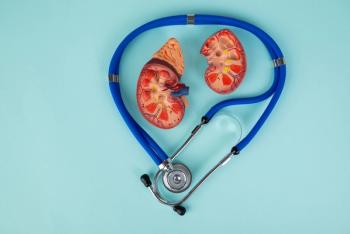
Experts at a recent Institute for Value-Based Medicine event emphasized the importance of early intervention, policy innovation, and proactive collaboration to transform the management of kidney disease and optimize patient outcomes.

Experts at a recent Institute for Value-Based Medicine event emphasized the importance of early intervention, policy innovation, and proactive collaboration to transform the management of kidney disease and optimize patient outcomes.

Recent discussions at an Institute for Value-Based Medicine event highlighted the significant potential of biosimilars in reshaping the health care landscape, despite facing considerable barriers to adoption.

At an Institute for Value-Based Medicine® event held in Aurora, Colorado, experts discussed strategies to improve patient outcomes and manage health care costs in neurological diseases.

Big Hairy Audacious Goals (BHAGs) can focus our attention and propel needed action to improve total population health, the authors argue.

The authors evaluate features of the Transforming Episode Accountability Model and discuss its benefits and limitations.

Preventing or delaying the onset of end-stage kidney disease is vital. By implementing a results-driven, value-based approach, Dallas Nephrology Associates has demonstrated improved patient outcomes and value for payers.

Researchers developed and tested an assessment tool to measure coordinated care for traumatic brain injury against the criteria of an integrated practice unit.

The authors discuss multiple challenges to the production of policy-relevant results from evaluation of Medicare accountable care organizations (ACOs).

The editor in chief introduces and summarizes commentaries from our editorial board containing practical solutions that could be feasibly implemented to improve American health care.

To achieve longer accountable relationships, a bridge from one insurer to another could be built through continuity of accountability amid insurance transitions, improved risk prediction, and cooperation in the design of accountable care models.

As health care costs escalate, a new survey reveals that 74% of employers are grappling with the impact on employee wages and benefits, with many anticipating further cost-shifting to their workforce.

The authors detail how artificial intelligence could be used in primary, secondary, and tertiary prevention to improve health outcomes and provide better value-based care.

As the US charts its course through the next political era, it is crucial that we boldly allocate resources and prioritize what truly impacts patients. When faced with complexity, feasibility concerns, or entrenched norms, we must proclaim: “It’s the outcomes, stupid.”

Here are 10 concrete, immediately implementable, and highly impactful measures that could significantly improve the US health care system by expanding access and reducing costs.

There are 3 ways to make the US health care system more efficient and sustainable: address its burdensome complexity, emphasize primary care reimbursement, and regulate drug pricing.

A Primary Care Moonshot could reorient the US health care system to a system of wellness and prevention, with long-term savings in care expenditures and better health outcomes.

The author highlights reasons why we have not seen substantial cost savings in the health care industry and why future efforts are likely to continue to see forceful pushback, as well as offers potential solutions.

The US should consider reducing or eliminating employer-sponsored insurance. Here are some ways to do it efficiently.

The policy community should consider these concrete suggestions to address the challenges presented by social determinants of health.

Raising the visibility of the importance of trust in patient-clinician relationships can help ensure it is acknowledged and incorporated into policy and tactical considerations.

As health care moves toward a value-based payment model, the pharmacy benefit is going in the opposite direction, one that places unit cost over clinical appropriateness.

259 Prospect Plains Rd, Bldg H
Cranbury, NJ 08512
© 2025 MJH Life Sciences®
All rights reserved.
